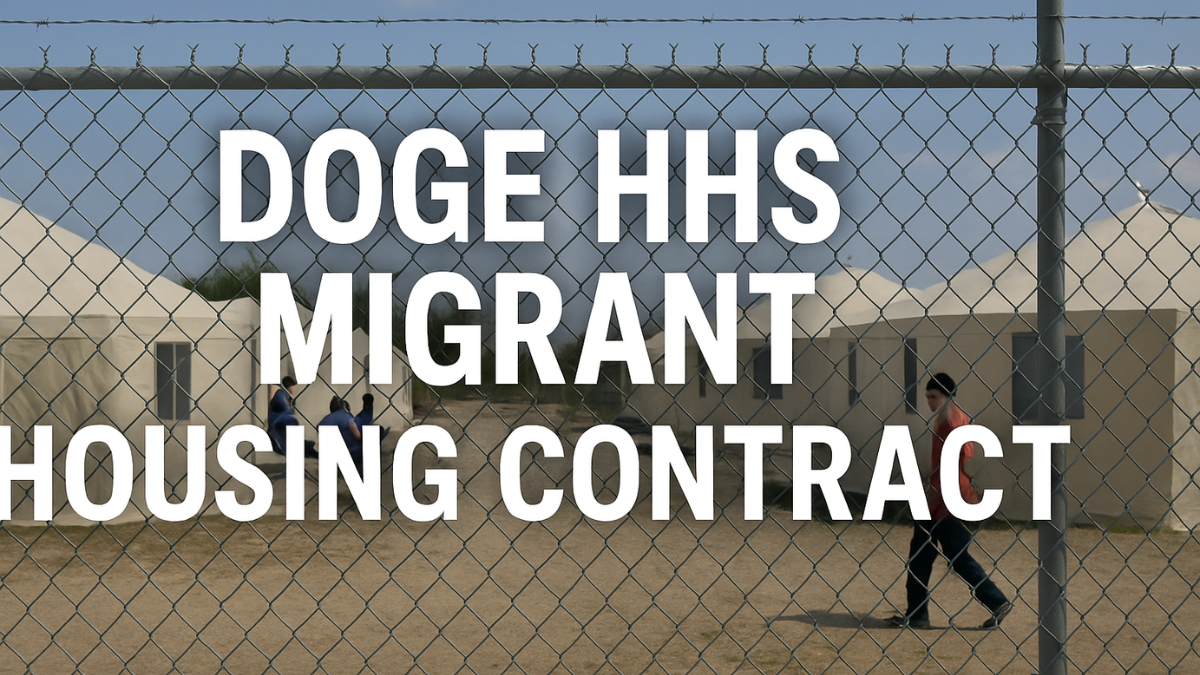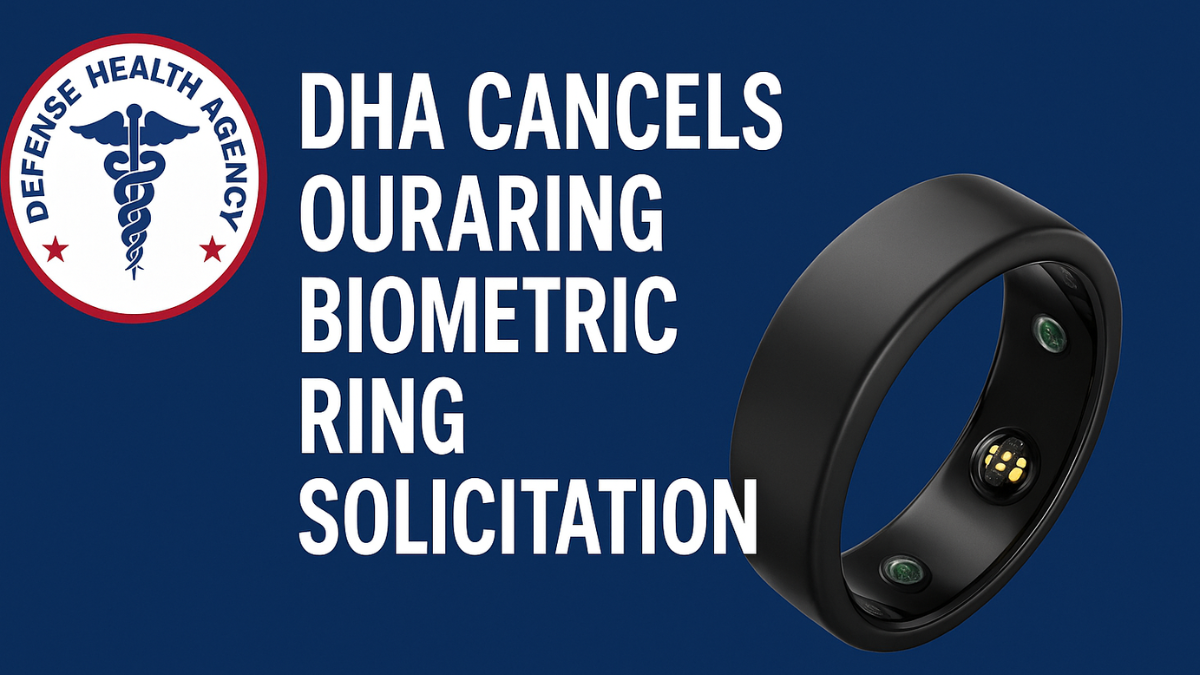Explore the details of the Doge HHS migrant housing contract, including its funding, controversies, facility conditions, and implications for U.S. immigration policy and taxpayers.
also read:https://usaenliinea.com/united-airlines-flight-ua770-emergency-diversion/
Introduction to the Doge HHS Migrant Housing Contract
The Doge HHS migrant housing contract has gained attention in both political and public circles due to its large budget allocation and its role in managing migrant housing in the United States. With immigration continuing to be a hot-button issue, the federal government, particularly the U.S. Department of Health and Human Services (HHS), has entered into various partnerships to support temporary housing solutions for unaccompanied migrant children.
Among these, the Doge contract stands out for its size and complexity. But what exactly is this contract about, and why has it sparked debates across various sectors?
Understanding the Role of HHS in Migrant Housing
Before diving into the specific Doge HHS migrant housing contract, it’s essential to understand the HHS’s role. The HHS, through its Office of Refugee Resettlement (ORR), is responsible for the care of unaccompanied alien children (UACs) who arrive at the U.S. border.
The ORR operates shelters, transition centers, and other care facilities across the country in partnership with private contractors, non-profits, and corporations. These contracts often include funding for housing, education, medical care, and case management services for the minors.
Who is Doge and What Is Their Role?
In this context, Doge refers to Doge Federal Solutions, a lesser-known but rapidly emerging private contractor. The company secured a substantial contract from HHS to provide housing and supportive services to migrant children.
The Doge HHS migrant housing contract includes the setup and management of temporary shelters that meet federal guidelines for safety, health, and wellness. The company was tasked with creating facilities equipped to manage the large influx of minors while ensuring humane treatment and compliance with U.S. child welfare standards.
Key Contractual Details: Budget, Duration, and Scope
According to official records and investigative reports, the contract awarded to Doge was valued at over $600 million and spans a multi-year period, although some sources report it might be a one-year emergency procurement.
Here’s a breakdown of the major components of the Doge HHS migrant housing contract:
| Component | Details |
|---|---|
| Contract Value | Estimated $600+ million |
| Contracting Agency | U.S. Department of Health and Human Services (HHS) |
| Duration | Initially short-term, with potential multi-year extension |
| Purpose | Shelter, food, education, and medical care for UACs |
| Facility Type | Temporary migrant shelters and group homes |
| Location(s) | Undisclosed facilities across multiple U.S. states |
| Monitoring Agency | Office of Refugee Resettlement (ORR) |
Why Was Doge Selected?
Critics have questioned the selection of Doge, citing its lack of significant public background in migrant care services. However, proponents argue that Doge met all emergency procurement criteria during a time when the government needed rapid scalability to accommodate increasing numbers of UACs.
Factors believed to have contributed to Doge’s selection include:
- Fast mobilization capabilities
- Cost-effective operational proposals
- Readiness to deploy housing infrastructure
- Partnerships with sub-contractors and local agencies
Controversies Surrounding the Contract
Despite the operational advantages, the Doge HHS migrant housing contract has drawn significant scrutiny. Key concerns include:
1. Lack of Transparency
The contract’s full terms, evaluation criteria, and facility locations remain undisclosed to the public. This has raised transparency concerns among watchdog organizations and immigration advocacy groups.
2. Oversight and Accountability
Reports suggest that some facilities may have lacked proper oversight, leading to potential violations of child care standards. There have been demands for more thorough inspections and public disclosures.
3. Ethical and Legal Implications
Human rights advocates worry that contracting out child care to private firms, especially those with limited experience in this domain, may lead to ethical lapses or inadequate services.
Facilities and Conditions Provided
Despite controversies, Doge’s facilities under the HHS contract are reportedly equipped with:
- Climate-controlled sleeping areas
- On-site healthcare services
- Schooling or educational activities
- Mental health and counseling support
- Meals adhering to federal nutrition standards
However, due to minimal press access, it is difficult to verify the consistency of these standards across all facilities.
Financial and Taxpayer Implications
With over half a billion dollars invested, taxpayers have demanded to know how their money is being used. According to financial audits, a large portion of the funding goes toward:
- Infrastructure development and retrofitting
- Staffing and training of caretakers
- Educational material and support services
- Medical supplies and mental health support
Still, many believe that such funding should come with stricter reporting mechanisms and public accountability.
Public and Political Response
The public opinion remains divided. Some citizens view the contract as a necessary response to the migrant crisis, while others see it as a misuse of federal funds. Political leaders, especially from border states like Texas and Arizona, have also voiced strong opinions—both in support and opposition.
There have been congressional calls for investigations and reviews to ensure compliance with federal standards and transparency laws.
Alternatives and Recommendations
Experts suggest several improvements for future migrant housing contracts:
- Third-party oversight to ensure contractor accountability
- Public disclosure of contract terms and evaluations
- Clear performance metrics tied to renewals or extensions
- Greater involvement of vetted nonprofits with a history in child welfare
Additionally, many believe that strengthening the immigration system at the root—like faster asylum processing and better family reunification policies—can reduce the need for large-scale housing contracts.
FAQs about the Doge HHS Migrant Housing Contract
- Is Doge Federal Solutions a government agency?
No, Doge is a private contractor selected by HHS to provide migrant housing services. - How was Doge chosen for this contract?
Through an emergency procurement process during a surge in unaccompanied migrant children. - Are all migrant children placed in Doge-run shelters?
No, Doge is one of many contractors. Others include non-profits and faith-based groups. - Can the public visit these facilities?
Generally, access is restricted due to child privacy and safety concerns. - Are the shelters permanent?
No, most are temporary or transitional facilities. - Is there any ongoing investigation into Doge’s contract?
Several advocacy groups have called for audits, but no formal criminal probe is confirmed. - Does the contract include mental health support for children?
Yes, mental health care is a required service under HHS guidelines. - How many children does Doge’s facility hold?
The exact number is undisclosed, but it is believed to be in the thousands. - Is the Doge contract still active?
As of the latest reports, the contract remains active and may be renewed or revised. - Can taxpayers view financial breakdowns of the contract?
Some financial details are public, but full contract disclosures are limited.
Conclusion
The Doge HHS migrant housing contract reflects the urgent and complex nature of managing migration at the U.S. border, particularly concerning unaccompanied minors. While the contract addresses a critical need for rapid, humane housing, it also highlights broader issues around transparency, accountability, and ethical responsibilities in federal contracting.
As debates continue, the focus must remain on ensuring that migrant children receive safe, dignified, and supportive care while policymakers work toward more sustainable immigration reforms.
also read: https://usaenliinea.com/explore-famousparentingg-com-a-complete-guide-to-trusted-parenting-advice/
also read: https://usaenliinea.com/vidmattapp-the-ultimate-guide-to-downloading-and-enjoying-videos-offline/
also read:https://usaenliinea.com/nhentai-het/
also read: https://usaenliinea.com/en-in-obnews-co/
also read: https://usaenliinea.com/gomyfinance-com-credit-score/
also read:https://usaenliinea.com/doujindesu/
also read: https://usaenliinea.com/the-techno-tricks/







